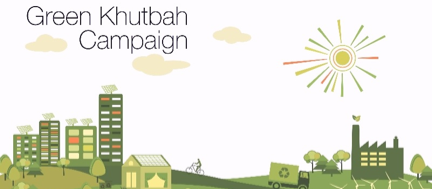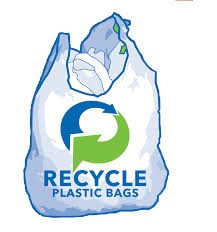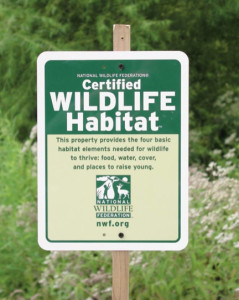 The annual ‘Green Khutbah Campaign’ is Friday, April 18 2014, in advance of Earth Day 2014. The organizers of this event invite Muslims to devote their Friday Khutbah on this day to acknowledge the blessings, graces and beauty of all of Allah’s creation and to raise awareness on the environmental challenges facing humanity. Please visit the website where you can sign up, get more information and find links to resources.
The annual ‘Green Khutbah Campaign’ is Friday, April 18 2014, in advance of Earth Day 2014. The organizers of this event invite Muslims to devote their Friday Khutbah on this day to acknowledge the blessings, graces and beauty of all of Allah’s creation and to raise awareness on the environmental challenges facing humanity. Please visit the website where you can sign up, get more information and find links to resources.
New Scientific Studies on Climate Change Call for Urgent Action
 Two of the most respected scientific organizations worldwide, the Intergovernmental Panel on Climate Change (IPCC) and the American Association for the Advancement of Science (AAAS), recently released reports that warn of dire consequences for people and the environment across the globe if we don’t make significant changes very soon. These reports show that climate change is already here and generating negative impacts on every continent.
Two of the most respected scientific organizations worldwide, the Intergovernmental Panel on Climate Change (IPCC) and the American Association for the Advancement of Science (AAAS), recently released reports that warn of dire consequences for people and the environment across the globe if we don’t make significant changes very soon. These reports show that climate change is already here and generating negative impacts on every continent.
The American Association for the Advancement of Science (AAAS) has come out with a new initiative, entitled “What We Know” focused on raising awareness across the U.S. about the need to take action on climate. Check out their informative webpage, along with numerous videos. (We especially like Brake for Climate.)
The AAAS warns that as global temperatures rise, there is a real risk that parts of the Earth’s climate system will experience abrupt, unpredictable and potentially irreversible changes. These scientists are now recognizing the social and moral responsibility they have to raise awareness about what we already know and the need to act now.
The Intergovernmental Panel on Climate Change (IPCC) has published a draft of a new report urging the world community and governments to make significant changes soon, if we are to keep the average global temperature from warming more than 2 degrees Celsius. The global scientific community agrees that we should not exceed this 2 degree Celsius number, yet we are on track to warm the earth by an average of more than 4 degrees.
Go Meatless Once a Week
 Take a bite out of global warming: Go meatless once a week
Take a bite out of global warming: Go meatless once a week
How much do you know about the link between meat and climate change? Here’s a great resource: The Environmental Working Group’s “Meat Eater’s Guide to Climate Change and Health.”
Eating less meat is one simple way you and your community can significantly reduce your carbon footprint.
Did you know that if everyone in the U.S. ate no meat or cheese just one day a week, it would be like not driving 91 billion miles – or taking 7.6 million cars off the road?
By eating less meat, especially from livestock raised in concentrated animal feedlot operations, you can help reduce the use of fossil fuels and greenhouse gas emissions generated by our industrial food system. Reducing meat consumption helps the environment in other ways including a reduction in the use of water, and the use of toxic pesticides used to raise the corn and soybeans fed to livestock.
Learn more at the Environmental Working Group.
Webinar: Green Power Use and Opportunities for Congregations
Update April 30, 2014: Thanks to all who joined us for the webinar. If you missed it, you can still watch a recording of it here. You can also view the slides here.
On Tuesday, April 29, 2014, from 1:00 – 2:00 pm (EDT), the U.S. Environmental Protection Agency’s Green Power Partnership (GPP) will host a webinar on “Green Power Use and Opportunities for Congregations.” The webinar will examine how congregations can capture economic, environmental, and educational benefits by using renewable energy.
For most congregations, electricity usage is the single-largest source of greenhouse gas (GHG) emissions. Thus, using green power can play a significant role in reducing a congregation’s carbon footprint. This webinar will examine how and why congregations and other organizations use green power, including a review of available product options, benefits of procuring renewable energy, and the positive role congregations can play in encouraging green power use by congregants and others.
Webinar participants will also learn about:
- Green power product and procurement options, and associated costs and benefits.
- Overview of EPA’s Green Power Partnership, including how the Partnership can help congregations leverage their green power use to bring positive attention to an organization.
Preach-In 2014
Yes, it’s after Valentine’s Day, but you can still participate in the Preach-In. The Preach-In is a nationwide push for faith communities (all faith communities) to hold a worship service, a discussion, or other event that focuses on climate change.
This year we have already had more than 1500 houses of worship participate! Yours can too. Click here for sample sermons, sample prayers, and other resources.
Become a Certified Wildlife Habitat
Earth Day is just around the corner. Looking for a hands-on way to care for creation? Whether you have a small patio garden, a vacant lot, or a patch of soil at the edge of your parking lot, your faith community can use your outdoor space to help conserve and restore wildlife habitat.
The website of the National Wildlife Federation offers specific guidelines on providing for the four key elements that wildlife need – food, water, cover, and a place to raise their young.
Find out how you can create a garden that not only provides a haven for birds and butterflies but also qualifies to become an official Certified Wildlife Habitat.
That’s just what one member of New York Interfaith Power & Light did in downtown New Rochelle. The members of the Empty Hand Zen Center transformed a small, fenced-in parking lot (just big enough for two cars) from lifeless gray to a flourishing beautiful garden that changes with the seasons.
Tended with love by the members of this community and led by their teacher, Jion Susan Postal, they created this garden – bucket by bucket of soil – on top of the asphalt along with a diverse array of evergreens and willows in pots, bird feeders, a bird bath, a compost bin, and a small table and chairs for tea.
They created what Susan lovingly called a “wild garden,” a place of refuge for people and wildlife alike.
The sign on the gate makes this transformation official: this is a Certified Wildlife Habitat.
Keystone XL Pipeline News
People of faith are called to protect Creation and to serve one another. The Keystone XL Pipeline would facilitate the extraction and marketing of the world’s dirtiest oil, expedite destruction of old growth forest and First Nations land in Canada, and endanger farms, water, and homes in the states through which it would travel. There is no justification for allowing this project to go forward.
The Keystone XL Pipeline is once again in the national news, as the State Department released a “massive” environmental review on the project Friday. The study concluded that neither blocking nor approving the northern section of the pipeline would have a “significant” impact on greenhouse gas emissions, because the tar sands oil will be mined, it says, with or without the pipeline.
Even though this seems to be very bad news for those of us who care about the earth and climate change, it’s not over yet. The White House has made it clear that they are still considering all options.
In an interview with CBS news on Sunday, White House Chief of Staff Denis McDonough reiterated the President’s position that he will make the decision on Keystone dependent upon whether or not it would “significantly exacerbate what is a significant climate change crisis we face in this country.”
In the President’s State of the Union address last week we were glad to hear him say “The debate is settled: Climate change is a fact; and when our children’s children look us in the eye and ask if we did all we could to leave them a safer, more stable world with new sources of energy I want to be able to say ‘yes, we did!’”
New York Interfaith Power and Light will encourage people of faith to participate in the upcoming public comment period on the Keystone Pipeline. And our national IPL has already asked the President, in a letter signed by 150 clergy leaders, to reject this pipeline on moral grounds. We will continue to oppose this pipeline because mining tar sands oil will drastically worsen climate change. Click here to tell the President to oppose this dangerous project.
Plastic Bags and Climate Change? Who Knew?
 Sea birds choking on plastic. Sea bass sex hormones messed up by dioxin from plastic. Ocean ecosystems overwhelmed by plastic bags. Highway medians and shoulders and city sidewalks littered with plastic bags. But who knew that that plastic bags contributed to climate change?
Sea birds choking on plastic. Sea bass sex hormones messed up by dioxin from plastic. Ocean ecosystems overwhelmed by plastic bags. Highway medians and shoulders and city sidewalks littered with plastic bags. But who knew that that plastic bags contributed to climate change?
About six percent of the world’s oil is used for producing plastic. Producing and incinerating plastic takes about 6 pounds of CO2. Recycling of plastic saves on average about 2.5 lb of CO2 per lb of plastic. Thus recycled plastic produces about 3.5 lb CO2 compared to 6 lb of CO2 for new plastic.
New Yorkers can recycle plastic at their grocery stores and certain other retailers. Not just plastic grocery bags but also the plastic bread bags, cereal bags, frozen food bags, and produce bags with ALL food residue removed, as well as plastic stretch/shrink wrap with food residue removed. Also recyclable, those plastic bags that dry-cleaning and newspapers come in and the plastic wrap that comes on rolls of toilet paper and such. For a full list you can print out and stick up on your refrigerator see the NYDEC website. And you can just remember to re-use your own bags.
Liquefied Natural Gas (LNG)
 What is liquefied natural gas (LNG)?
What is liquefied natural gas (LNG)?
Liquefied natural gas is natural gas that has been converted to liquid form for ease of storage or transport. To convert it to a liquid form, it must be cooled to minus 250 degrees Fahrenheit. Natural gas is converted to a liquid in order to transport it more easily in places where there are no pipelines. Liquefied natural gas takes up less space. So, it makes it much easier to export.
Why am I hearing about this now?
The natural gas industry is pressuring local governments to build new infrastructure that will allow them to ship natural gas overseas.
For the past 40 years, there has been a de-facto ban on LNG in New York State. Before the ban can be lifted, the state assembly requires rules for siting and operating them. Recently the Department of Environmental Conservation has proposed rules to permit “safe siting, construction, and operation” of LNG facilities and transportation in the state.
Why should I oppose LNG?
We should oppose LNG facilities and transportation for several reasons.
- It will increase the demand for fracked natural gas.
- To super-cool it to a liquid form requires a great amount of carbon-intensive energy, doing more damage to the climate.
- It is hazardous and accidents can happen. An explosion in 1973 killed 40 workers on Staten Island.
- Routine venting allows methane gas into the atmosphere, which is a problem because over a one-hundred-year time span, the global warming potential of methane is about 34 times that of carbon dioxide.
- It is a distraction from investing in renewables and conservation.
How can I oppose LNG?
The DEC is accepting comments from the public until December 4, 2013 at 5:00 p.m.
An Open Letter to Governor Cuomo on Liquefied Natural Gas
October 28, 2013
The Honorable Andrew M. Cuomo
Governor of New York State
NYS State Capitol Building
Albany, NY 12224
Subject: Proposed 6 NYCRR Part 570 – Regulation of Liquefied Natural Gas Facilities
Dear Gov. Cuomo:
New York Interfaith Power & Light is a non-profit organization representing 98 congregations of all faiths across the state of New York. We regularly communicate with more than two thousand people via email. We are a part of the national Interfaith Power and Light campaign with chapters in 40 states. This movement addresses climate change from a faith perspective.
In commenting on the proposed regulations for LNG facilities, we will not comment on the many serious inadequacies of the rules from a standpoint of health and safety, for we know that respondents with more expertise will have already done so. As an organization concerned with climate change, we will comment on the rules only as they relate to the risk of climate disruption. The operation of LNG facilities of any size and the use of the fuel that they store will contribute to climate change through the release of greenhouse gases.
This process of rule making has been delayed for many years since the enabling legislation was passed in 1976. We do not see a pressing need to go forward at this time, just as the human contribution to climate change has been affirmed at a 95% confidence level by the world’s climate scientists.
The Board of Directors of New York Interstate Power and Light urges you to withdraw these proposed regulations, which are inadequate to the ethical challenge we face by promoting the use of fossil fuels. There are no “clean” fossil fuels other than those left in the ground.
Our state has shown climate leadership in many matters, including the Regional Greenhouse Gas Initiative and the promotion of renewable energy and energy conservation by NYSERDA. Let us continue to do so.
On behalf of NYIPL,
Janna Stieg Watkins
Executive Director



